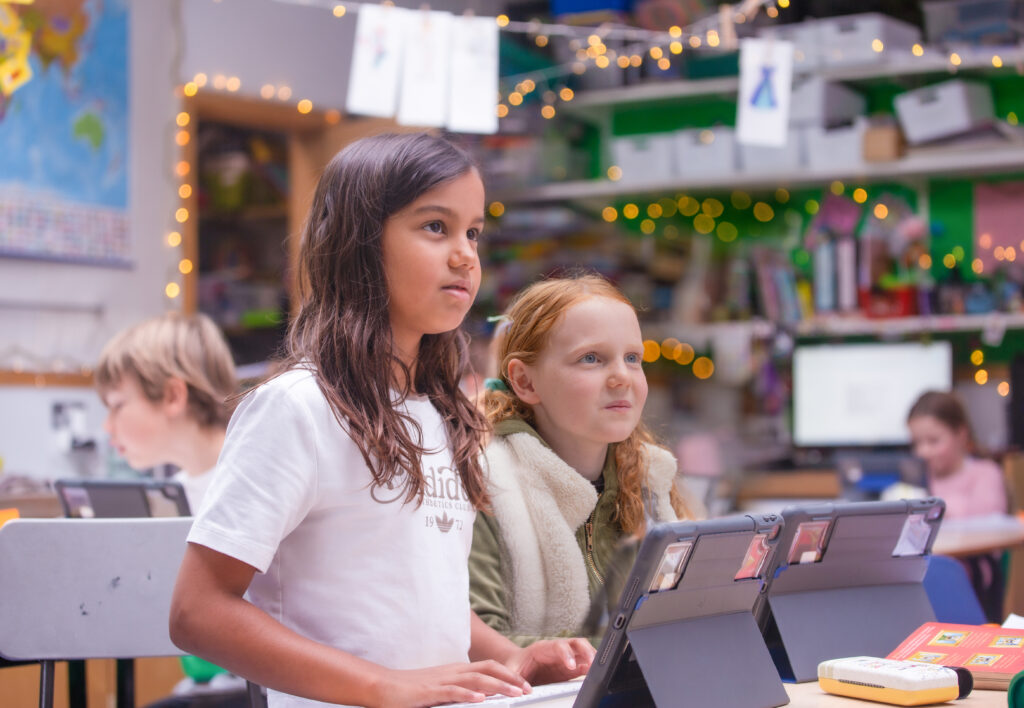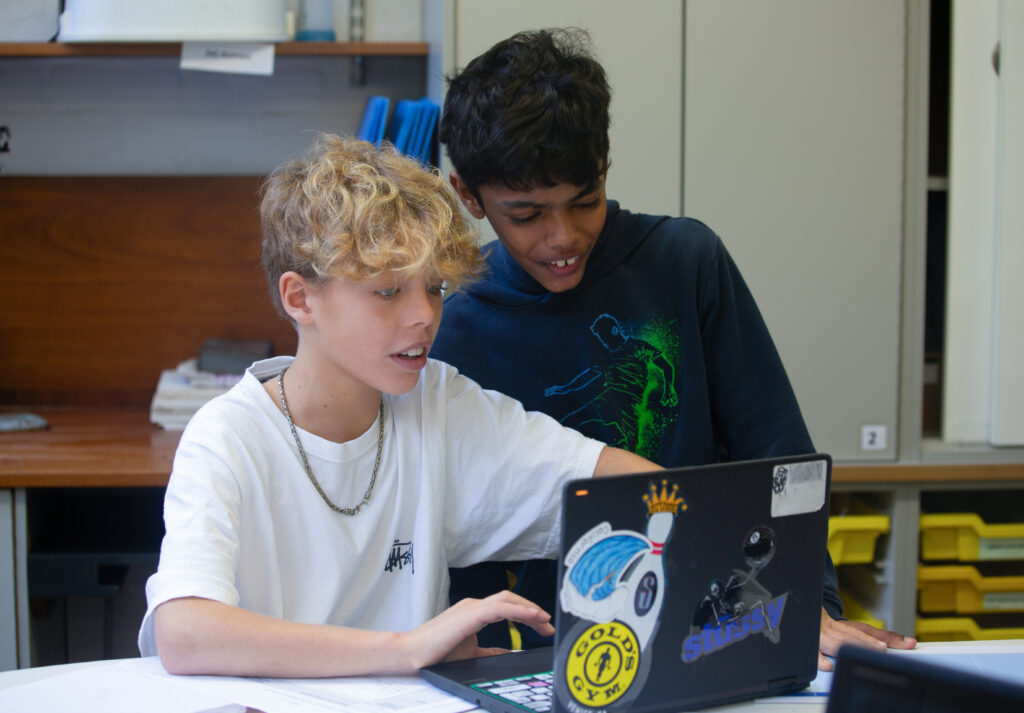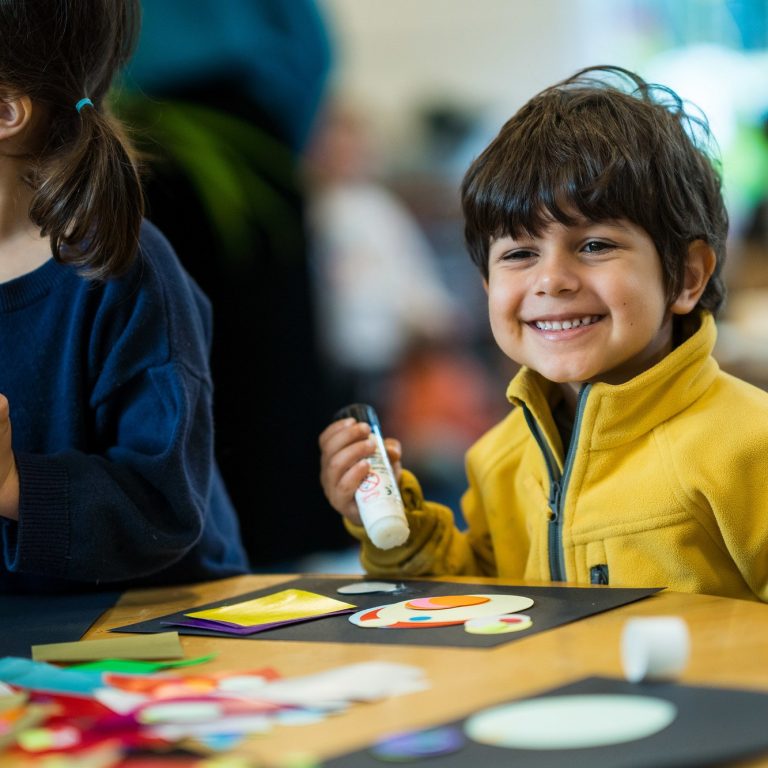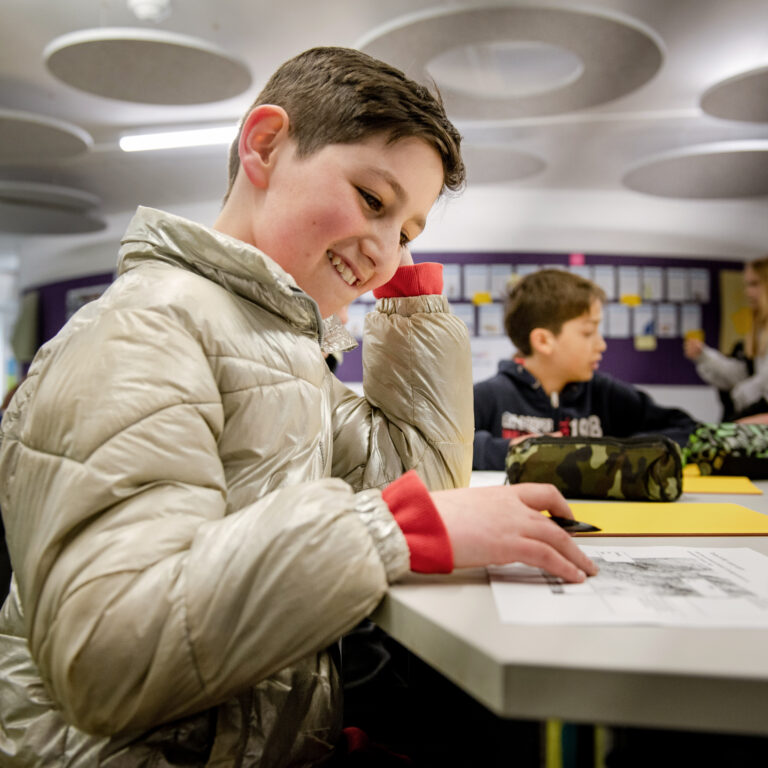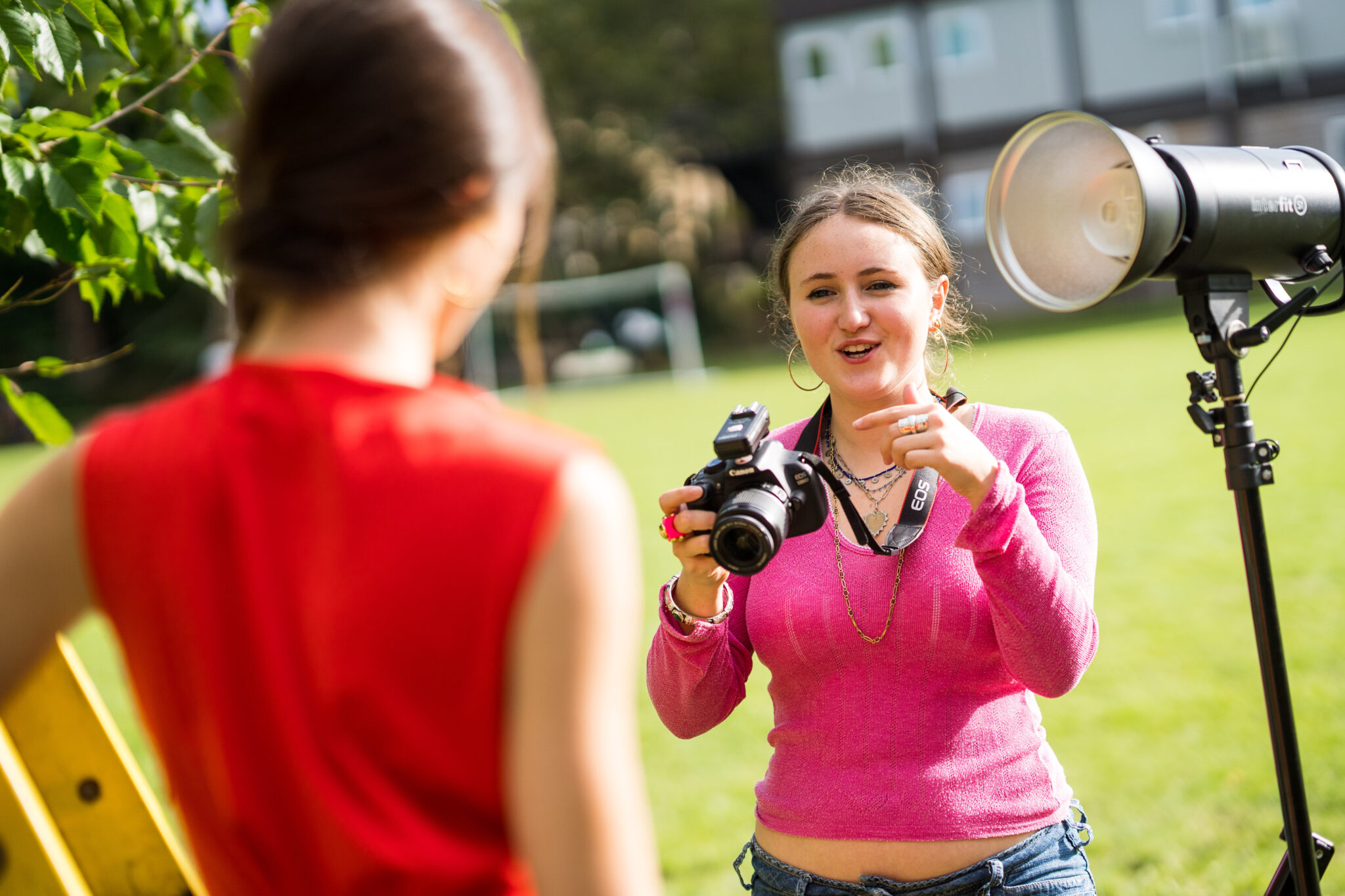Keeping your children safe online
25th November 24

Digital devices and platforms are an ever-greater presence in all our lives – something which presents many opportunities, but also various risks.
We appreciate that this is a key concern for parents, who are keen to understand and manage the various issues arising from these developing technologies. As a school, we are constantly monitoring and reacting to the changing technological landscape to ensure students are safe at all times.
Our guiding principle for tech use is that students should be creators, not consumers.
We recently shared more information, including policies, proactive measures and advice for parents, with our KAS community. You can find this information below.
How do we keep children safe online?
The school has various measures in place to ensure students remain safe using digital devices. These include practical measures that apply across all in-school technology usage, along with ‘digital citizenship’ skills taught as part of our Personal, Social, Health and Economic (PSHE) provision.
Practical measures
These include:
- Adult supervision for all tech use
- 24/7 safeguard keyword monitoring
- Universal threat management system
- Custom content filtering
Digital citizenship
Your child will use a range of technology as they develop their digital literacy during their time at KAS. Alongside this, our PSHE provision empowers students to become ethical, safe and upstanding digital citizens, teaching them how to balance digital device use with offline activities and to manage potential risks to their well-being. Topics covered include:
- Media balance and well-being
- Privacy and security
- Digital footprint and identity
- Cyberbullying, digital drama and hate speech
- News and media literacy
- Relationships and communication
Smartphone use at KAS
Academic research into the effects of smartphone use on adolescent brains is still evolving, but there is evidence that it is linked to poor mental health outcomes, including increased rates of depression, anxiety, opportunity loss and development of compulsive behaviours (‘addiction’). At KAS we are working with our community to limit the use of smartphones at this crucial stage of young people’s development.
Lower School
No phones are allowed. If a child in Year 5 or Year 6 requires a phone due to a long commute, this must be a feature phone and handed in at the office on arrival.
Upper School
Year 7: Live trial of feature phones only.
Years 7-11: Phones cannot be used during the school day. They must be handed in or stored in lockers until hometime.
What support do we offer parents?
Our IT department and Digital Literacy Co-ordinator, Kevin Tibbles, is on hand to support any parents who have concerns or questions regarding technology use. Services offered include:
- One-to-one device workshops: bring your tech into school for help setting parental controls
- Parent workshops covering various topics (see newsletter for details)
- Dedicated EdTech expert available for help with all tech matters at home
RELATED READING: Top tips from our KASparents event ‘How to navigate the dangers of smartphones’
What can parents do at home?
There is plenty of advice and resources parents can draw on to help protect their children outside of school.
1. Monitor the sites and apps your children are using
Regularly check the sites and apps your children visit. Sit with them while they use them so you understand how they work. Platforms where users create and publish their own content – such as Roblox and YouTube – pose more risk of your child seeing something inappropriate or upsetting.
Whilst such sites do have community standards and moderators, the volume of content being published means things can slip through the net. We therefore recommend only allowing access to these types of sites with an adult.
Parents should also be aware of sites with chat functions that allow users to talk to strangers, and use the safety settings to block this.
The NSPCC website has a host of useful advice for staying safe online.
2. Install free and effective internet filtering
We recommend using OpenDNS Family Shield for your home internet filtering. This is a free service that provides an easy but effective way to block access to inappropriate websites on every device in your home.
3. Use parental controls
Nearly every device or service your child uses will have built-in parental control tools. While they vary in quality and features, something is always better than nothing! The Internet Matters website has guides for most devices and platforms, including iPads and iPhones, game consoles, social media apps, smart TVs and most streaming services.
4. Be aware of age limits
All social media platforms and many websites have a minimum user age requirement. Ensure children use their correct age to sign up so the relevant safety settings are in place.
In light of growing research, we advise against social media for children under 14. If you do allow it, we recommend keeping an eye on the content they’re viewing.
5. Try the Four Ds
Supporting, setting up and implementing the ‘Four Ds’ at home is a good idea, although pick your battles and be realistic. The Four Ds are:
- Digital-free zones – would keeping devices out of bedrooms, or in a particular area of your home, be beneficial for your family?
- Digital role models – parents and carers leading by example online and with digital usage help to set the standard for how your children will use their devices.
- Digital sunset – Blue light from devices has been shown to interrupt your body’s production of melatonin, making it harder to fall asleep. To prevent this, young people should stop using mobile devices two hours before they go to sleep.
- Digital detox – as a family, why not try a gadget-free day or hour?
6. Other tips
- Set fair and consistent rules concerning your child’s internet use at home. As they get older, try to agree on the rules in collaboration with them so that they have some control over their digital world. Some families may find it useful to create a Family Media Use Agreement; please find some examples here.
- Teach your child to think critically about what they see, read or hear online. As they get older, they need to be able to assess for themselves whether they are in a risky online place and whether the information they are receiving is reliable and helpful to them.
- Maintain a positive outlook on your child’s use of the internet. Whatever you think of the stuff they watch, if you only criticise the apps or games they love, they are not going to want to talk to you about their online life. Remember if something happens online at home don’t get mad, get curious.
- Children who can recover from an online mistake can learn and avoid making the same mistake again. You can help by making it easy for them to talk to you about their mishaps. At KAS we encourage children to speak to an adult right away if anything online makes them feel upset, uncomfortable or angry. This allows them to put distressing experiences in context and get immediate support.
- Allow your child to have a degree of ownership of their online life. Having some control over any given situation is an important part of resilience and an important part of digital resilience. It’s essential to help them understand and develop their own sense of what’s right and wrong online.
- Talk about what they think is normal online and what behaviour to expect from others and themselves.
Current KAS parents can reach out to our Digital Literacy Coordinator, Kevin Tibble, for one-to-one support with all e-safety queries and concerns. Email kevint@kingalfred.org.uk.



